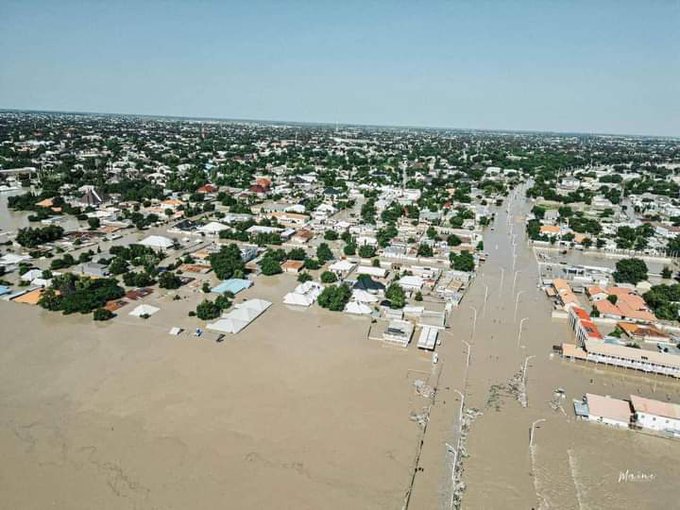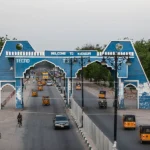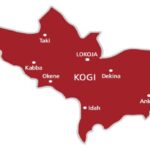A flash flood has severely damaged the Ajiri-Dikwa and Dikwa-Maiduguri roads in Borno State, disrupting the movement of commuters and travellers, including those from neighbouring countries.
The development came weeks after floods washed away sections of the Madagali/Gwoza and Maiduguri/Damboa roads, further compounding the state’s transport challenges.
The area affected, known as Bakassi, is located along the Maiduguri-Dikwa Road, about 5 kilometres from Dikwa Town in Mafa Local Government Area.
The floods have rendered significant portions of these roads impassable, affecting travel to and from communities such as Mafa, Dikwa, Ngala, Marte, Kala Balge and Maiduguri.
- APC’s Okpebholo wins Edo gov’ship election
- Katsina agog as 3 illustrious sons receive traditional titles
These roads are also critical international links, connecting Nigeria to Cameroon and Chad.
In response, the Borno State Police Command has advised travellers to seek alternative routes and stay updated on the situation.
The state capital also witnessed a devastating flood on September 10, when the Alau Dam collapsed, killing many people and destroying property.
Meanwhile, Ahmed Satomi, a member of the House of Representatives (APC, Borno), has mobilised 150 volunteer youths to fumigate and disinfect the Jere community, which has been heavily affected by recent floods.
The flood, which devastated Maiduguri and Jere, submerged 70% of public and government structures.
Satomi, alongside a member of the Borno State House of Assembly, began the fumigation efforts at the Almiskin Internally Displaced Persons (IDP) camp.
He explained that the initiative was organised in collaboration with the Borno State Environmental Protection Agency (BOSEPA) after identifying areas that trucks and vehicles could not access.
The volunteers are tasked with entering these areas on foot to disinfect them, he added.
The fumigation and disinfection campaign will last for five days and cover three wards-Mashamari, Old Maiduguri, Maimashari, and Galtamari-with plans to extend to other parts of Jere.
The operation, conducted from dusk to dawn, aims to eliminate mosquitoes and make homes habitable for flood victims who are preparing to return.
In addition to leading the volunteer effort, Satomi donated N200 million to the Borno State flood relief fund to assist victims.
Health experts have advised flood survivors to thoroughly clean and disinfect their homes before returning to protect against waterborne diseases, germs, and reptiles.
HYPPADEC asks Kogi residents in flood-prone areas to relocate
The National Hydroelectric Power Producing Areas Development Commission (HYPPADEC) has warned communities residing in flood-prone areas along river plains, urging them to relocate to safer grounds as water levels continue to rise.
HYPPADEC Managing Director, Abubakar Sadiq Yelwa, gave the warning during an inspection of the collapsed Idah Water Works in Kogi State.
He cited the continuous rise of water levels and the release of water from the Lagdo Dam in Cameroon as major concerns.
Yelwa urged riverside communities to heed the agency’s warnings to prevent potential disasters during this wet season.
He also called on the federal government to declare a state of emergency, given the alarming warnings from the Nigerian Meteorological Agency (NiMet) and previous flood experiences.
In collaboration with the Kogi State government, HYPPADEC has also pledged to rehabilitate the long-abandoned Idah community water works, which collapsed in 2012. The facility, originally designed to deliver one million cubic litres of water, is a priority for restoration.
While it is too early to estimate the cost of rehabilitation, Yelwa assured that with the cooperation of the state government, the project would be achievable.

 Join Daily Trust WhatsApp Community For Quick Access To News and Happenings Around You.
Join Daily Trust WhatsApp Community For Quick Access To News and Happenings Around You.


